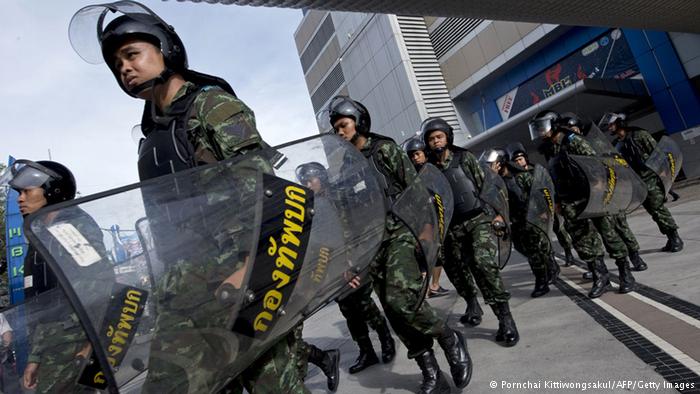The World Abets Thai Generals That Torture
By Basil Fernando
12 February, 2016
Countercurrents.org

A trio of human rights groups in Thailand has released an importantnew report on torture by military and paramilitarypersonnel in the south of Thailand.
The 120-page report, by the Cross Cultural Foundation, Duayjai and Patani Human Rights Organisation, is the most thorough account of the use of torture in Thailand’s south of recent times.
Drawing on careful documentation of 54 cases of torture, 32 within the last two years, it presents a grim picture of conditions in military custody.
Among the types of torture recounted are mock executions, sexual assault, electrocutions, beatings, and the use of stress positions, extreme temperatures, loud noises, dogs and other means to terrorize detainees accused of involvement or contact with separatists in the southernmost provinces bordering Malaysia.
Disturbingly, it notes that soldiers torture detainees not only at army camps but also in a variety of other sites, including at the compounds of some Buddhist temples where they are stationed.
When the rights groups released the report at an event last Wednesday, prominent human rights lawyer SomchaiHomlaor stressed that it was “not the intent of the report to discredit the performance of security officers in Thailand”. Rather, the groups are concerned that the continued use of torture by the military in the south make everyone less secure.
The army did not see it that way.
Within 24 hours, a spokesman for the Internal Security Operations Command, a counterinsurgency unit known forits history of violence with impunity going back to the 1960s, had denounced the report and threatened its authors.
Major General BanpotPoonpien said that the groups had fabricated the stories of torture to attract funding from abroad. He asked what mandate they had to investigate state officers’ work. And he warned that their appeals to international law, rather than domestic processes, might be defamatory.
The Major General may be unaware that as a party to the UN Convention Against Torture, the government of Thailand is already committed to make its domestic law comply with international standards.
But although Thailand has agreed on paper to eliminate torture, in practice it has done nothing towards this goal.
Human rights groups, among them the Asian Human Rights Commission, have documented the use of torture by the military and paramilitaries in Thailand for decades.
The mandate for this work is the mandate of universal human rights. And in Thailand it is an essential mandate, because there, like most other countries in Asia,no state institutions have ever taken responsibility to investigate and prevent torture.
In Thailand, torture is not a crime. On the contrary, laws mostly protect perpetrators. Additionally,any time survivors of torture talk about it, superior officers rise to defend their subordinates and threaten complainants.
A wave of new accounts of torture in army camps and at so-called safe houses followed the coup of 2014. Not only in the south, but also in Bangkok and other parts of the country, torture got a fillip with the army’s latest power grab.
The coup and subsequent reports of human rights abuses brought the usual mouthing of concern and downgrading of official ties by governments abroad. But for the most part, foreign relations with Thailand have been unaffected by events of the last couple of years.
Why do governments having close relations with Thailand appear to be unperturbed about accounts of torture and other gross human rights abuses?
Maybe it is about time that international support for the Thai army is tied to discernible improvements of human rights on the ground.
The governments of countries having strong bilateral relations with Thailand could start by insisting that its governmentpass a law to give the Convention Against Torture effect in domestic law, and set up a special agency to investigate and prosecute perpetrators.
They should also demand that for all the dollars spent on the Thai army, a comparable amount go to groups dealing with the damage that torture has caused to people’s lives, whether survivors or their families.
Above all, the international community needs to be much stronger in its insistence that Thailand’s army depart from politics and remain confined to the barracks. Until then, it will be hard to envisage a Thailand free from torture.
BASIL FERNANDO is a Sri Lanka born jurist, author, poet, & a leading human rights activist in Asia. He currently works as Director of Policy and Programmes at the Hong Kong-based Asian Human Rights Commission. Basil Fernando is a Laureate of the Right Livelihood Award, also known as “The Alternative Nobel Prize”. He received the Award in 2014 “for his tireless and outstanding work to support and document the implementation of human rights in Asia.”

